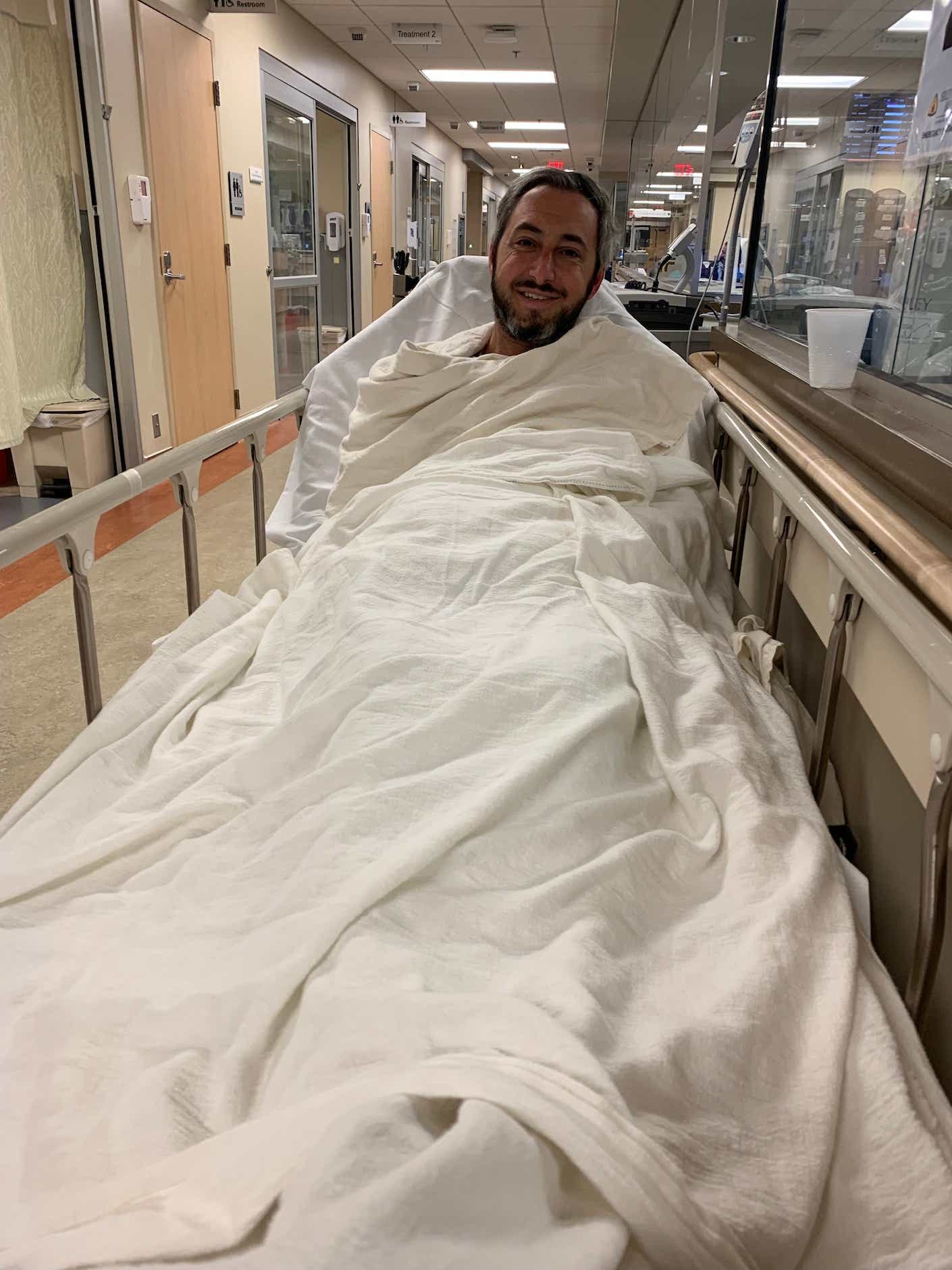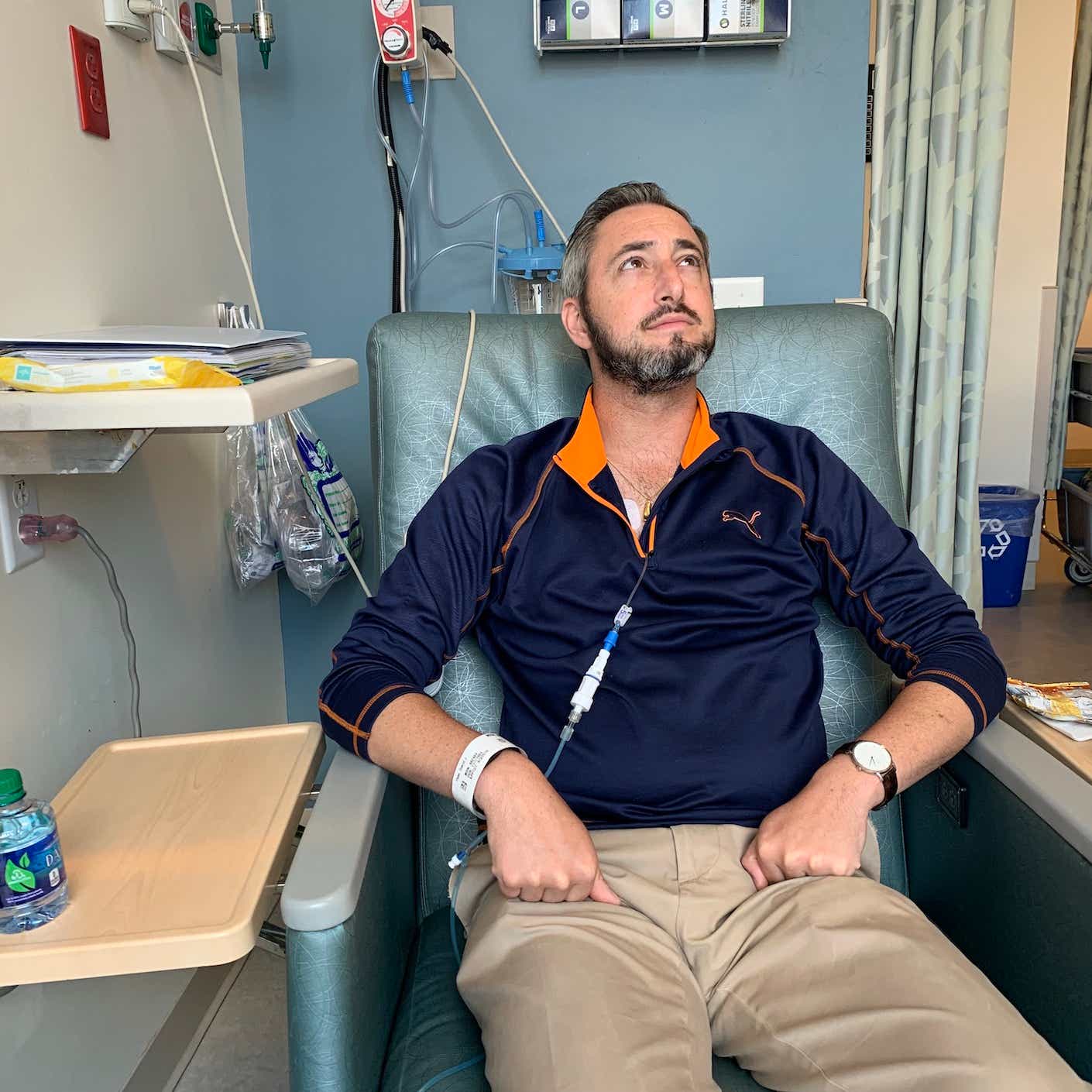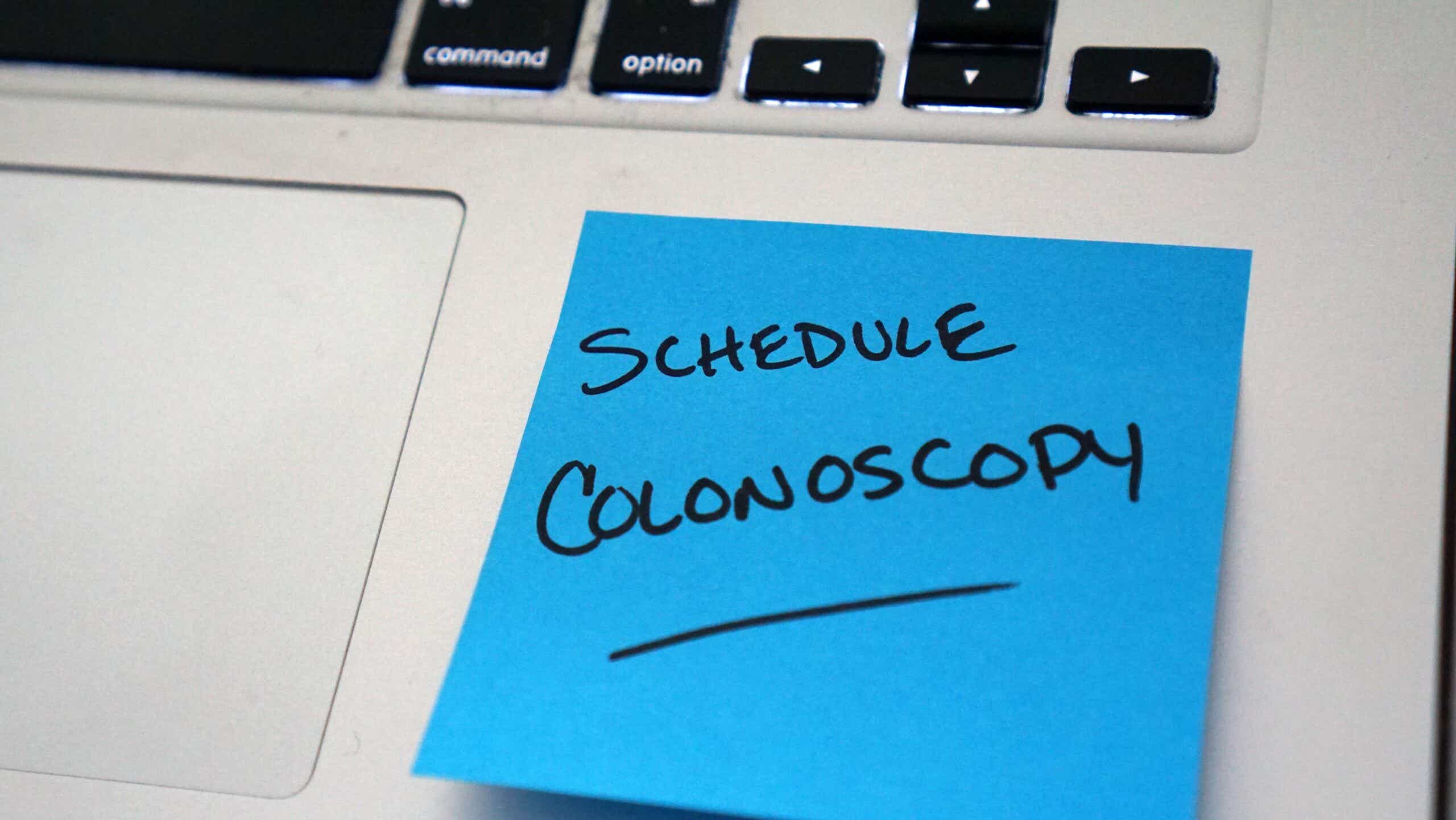On June 5, 2019, I raced to the emergency room thinking that my stomach was going to explode. Just a few hours later, I was blindsided by the three words everyone fears: You have cancer.
For a few years before my diagnosis, I had weird symptoms. Despite being an athlete growing up and maintaining an active lifestyle, I suddenly found that just walking up a flight of stairs left me winded. I had abdominal pain that would be extreme for a few days and then suddenly dissipate. I saw blood in my stool. I would vomit or dry heave in the morning constantly. I was turned away from giving blood for having insufficient iron. I saw my primary care doctor and a cardiologist, who ran tests — just not the right tests. But when the pain was finally too much, I went to the ER, and a CT scan revealed a baseball-sized tumor in my left descending colon. The diagnosis was stage 3C colon cancer. I was 34.
What I did not know then but have come to learn is that colon cancer and rectal cancer are on the rise in young people. Colon cancer diagnoses in those aged 20-34 are expected to grow 90% from 2010 to 2030, and rectal cancer diagnoses in that age group are expected to increase 124%. By 2030, colorectal cancers will be the leading cause of cancer-related death among people aged 20-49. Perhaps the scariest part of this rise is that researchers have not been able to pinpoint the reason.

There are hypotheses that obesity and a sedentary lifestyle contribute to colorectal cancers. Yet one of the first people I met in treatment was a 27-year-old Marine in perfect shape. He didn’t survive. Poor diet and eating too many processed foods are also possible links, and there are ongoing studies into the role of the microbiome and environmental exposure. This research is critical and needs to be funded, but while this work is ongoing, there needs to be a national awareness campaign so that people of all ages — but especially young people and their doctors — know the symptoms of colorectal cancer and can get screened if they have these symptoms. Thankfully, colorectal cancers are easily treatable if caught early.
Following two surgeries and 12 rounds of chemotherapy, I've been cancer-free for four years.

The symptoms most often seen in young people with colorectal cancer are blood in the stool, severe stomach pain, diarrhea or ongoing constipation, and anemia. Because the rapid rise in colorectal cancer among young people isn’t well known, severe symptoms are often dismissed as hemorrhoids or other conditions.
The gold standard for screening is a colonoscopy. A straightforward test that carries virtually no risk, a colonoscopy can catch early-stage cancer but also can reduce the chance of future cancers by removing precancerous polyps. Through campaigns like “Lead From Behind” featuring actors Ryan Reynolds and Rob McElhenney, the stigma behind colonoscopies is slowly dissipating. NFL legend Deion Sanders recently shared photos and encouraging words before and after his colonoscopy. In response to the rise in young-onset colorectal cancers, the U.S. Preventive Services Task Force lowered the recommended age for a first colonoscopy to 45 (from 50) in 2021. That is an important first step, but it’s not enough. A colonoscopy at 45 would have come too late for me and many, many others.
For those who cannot get a colonoscopy, stool-based tests like Cologuard are the next best option. They are incredibly convenient and user-friendly, and they’ve proven to be over 90% accurate at identifying cancerous diseases.

Every single person needs to make a plan to be screened at age 45, even if they feel completely healthy. Those with symptoms or family history should get screened earlier. Tell your friends and family to get screened. When I shared my diagnosis with friends and family, I heard a few weeks later that a friend went in for a colonoscopy and found several pre-cancerous polyps. If he had waited until age 45, they may have been cancerous. Whatever inconvenience a test may be, I can assure you it’s nothing compared to surgery and chemotherapy.
In 2023, 10 people under the age of 50 died every day of colorectal cancer. While we may not know what’s causing this uptick, we do know what works — screening saves lives. If you’re over 45 or if you’re younger and have symptoms or a family history, please get screened — it could save your life.
David Thau is a political consultant and cancer survivor living in Washington, DC, with his wife and daughter. In his spare time, he has focused on raising funds for colorectal cancer research and new treatments, raising awareness of the symptoms, and advocating for early screening to help save lives. To that end, Thau has been the leading individual fundraiser in the Jimmy Fund Walk each of the last four years and is a founder of BeSeen.









